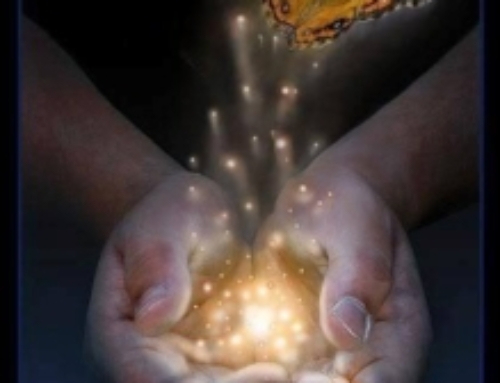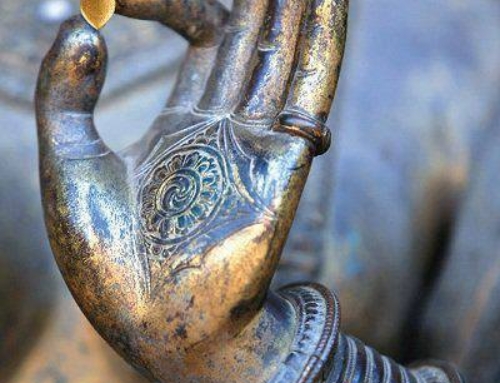“The intuitive mind is a sacred gift, and the rational mind is a faithful servant. We have created a society that honors the servant and has forgotten the gift.”– Albert Einstein
There are many times throughout our lives when we lose focus, feel stuck, and become stagnant. We may feel unmotivated, uninspired, even lost. Or we might just feel like we are going through the motion, having become the consumers of our lives, when we are not consumed by it. Does any of this feel familiar to you? You are not alone.
How do we reclaim our lives? By reclaiming our intuition and finding the flow of our own life, once more. This has always felt to me as a uniquely important way to reclaim our birth right: being fully part of each moment, more in charge of how we interact with everything inside and out.
It is what others may refer to listening to one’s intuition – a process that goes beyond our own inner voice. It involves not only the body-mind-soul continuum but also everything that is alive around us. Indeed, intuition comes from that constant interaction between our inner and outer world, the same way our genes express themselves in our environment and change overtime accordingly.
Here is my take on how this process of fully embracing the complexity and magic of this human experience. Ready? Come with me on this journey to strengthen your intuition, realign with your soul and reclaim your life flow!
Access intuition as a different form of “thinking”
Understanding intuition presents unique challenges to science, in particular to the branches of neuropsychology that study decision making. It is not the result of a deliberate process, with concrete steps that could be easily explained. For that reason, it is often presented as being irrational or illogical. It is often referred as a “gut feeling,” something that feels more natural, almost instinctual, and is indeed involving the whole body.
Whether we are aware of it or not, we accumulate a vast repertoire of experiences over years of living. We learn from the past and then quickly recognize, process, and try to quickly predict so we can made an instant decision, what Malcolm Gladwell has described as blinking, as opposed to thinking (when an analysis is performed). Others have defined intuition as arriving at knowledge without relying on reason. Yet, forward, and backward inferences are playing an essential role in intuition. Intuition provides us with an inner voice beyond logic or learned responses, revealing both who we are and the knowledge we have gained.
Seymour Epstein (2010) offers a further, complementary insight: “Intuition involves a sense of knowing without knowing how one knows” based on the unconscious processing of information. At times, we don’t even have the words for that kind of knowing.
Realign with your soul to build trust
Now, such process may benefit from, or be hampered by, experience, in particular if it has been negative. What is sometimes called the “survival brain” is going to tend to derive into fear and worse case scenarios. Instinct is kicking it, which is not necessarily bad but, contrary to intuition, it is a hardwired, less flexible, direct response to stimuli.
Negative and positive thoughts create a physiological response in the body. If you are aware of it, and work on further developing that awareness, your body will offer clues as to what is really at play there. And that’s where connection with soul can really help. “The ability to make quick, intuitive decisions is based on creating and cultivating self-trust,” said Dr. Dehra Harris, a former assistant professor of psychiatry at Washington University School of Medicine in St. Louis.
“Start with a moment of quiet and observe the different voices in your head,” advised Harris. “You’ll generally hear two voices. One is fear-based, associated with the racing, looping thoughts, while the other is more quiet and true to your nature,” Harris explained. “The best way to identify them is by noticing how they make you feel. Your inner voice will always calm you, even in the face of big tasks, while your fear-based voice will increase the overwhelm.” The former is the voice of your own soul. It is the part of you who is intact and that you can learn to trust in order to risk living more fully. It is also the part of you who will be able to notice the multiple signs that the Universe is sending you all the time, those signs that life is indeed flowing for us, with us, through us.
Strengthen intuition and reclaim your daily life flow
We can all have access to that guidance in our daily lives. The way is to progressively (re)train the conscious mind to slow down so we can be more radically present to what is inside and outside of us. This is how you will strengthen your intuition and reclaim your life flow.
Here are a few simple steps:
- Breathe into presence
Because your breath is always happening in the present moment, it’s your strongest connection to the here and now. You don’t have to do it for long but start with micro-pauses during the day, and a clear intention of being present at the beginning of each day.
- Choose a meditative activity that works for you
Yes cooking, washing dishes by hand, walking, running, dancing, painting, contemplating the clouds in the sky or the stars at night… are all valid alternatives to sitting meditation. Just find one that works for you.
- Go to nature
Another way to improve your attention skills is to spend time in nature. Nature often has a calming and centering effect, which helps your access to intuition.
- Practice mindful inquiry
Ask a question about an issue you are facing. Breathe into your question and then let it go. Take a walk in nature, enjoying your surroundings. When you need a rest or more quiet, stop and pick up an object from your surroundings — a stone, a stick, a leaf, whatever is lying there. Watch water flowing in the creek. Or feel the wind on your skin. And just listen.
You can use this question method in settings other than nature. To do this, focus on your question, then let it go. Then sit in meditation or do anything that calms you. The solution may arise in the process, after you finish, or later in your dreams.
- Uncomplicate the mind.
Our minds love to complicate things. How do you get out of your own way? First, be increasingly aware of when this happens. Two, pause often, particularly when you notice that you are falling into the usual stories of the mind, and come back to the breath in the body. Three, recenter to what is in the moment, around you and inside your body, your embodied feelings. This is what will help you develop a stronger connection with your intuition and trust it and follow it.
Not necessarily easy to do in the chaos of everyday life? It is natural, at first, to have difficulty distinguish intuition from emotions, usual thought patterns, instincts, etc. When you meet signs or encounter synchronicities, your rational mind might also wonder what is “real” or not. But with practice, you will progressively learn to trust how it makes you feel at a very deep level and how it help you feel more at ease with your daily life.
Let me know how it works for you and don’t hesitate to reach out. You don’t have to do it all by herself. Because the shamanic approach is so deeply embodied, a session can really help reopen that doorway for you and give you the tools to further strengthen your intuition so you can fully reclaim your life, one that is way larger than you might have ever imagined. Ultimately, this is also about being a more integrated, whole person, able to contain multitudes.
Béatrice Pouligny | Shamanic Healer and Spiritual Mentor
beatrice.pouligny@shamanicspiritualhealing.com
References:
- Epstein, S. (2010). Demystifying intuition: What it is, what it does, and how it does it. Psychological Inquiry, 21(4), 295–312.
- Hogarth, R. M. (2010). Intuition: A challenge for psychological research on decision making. Psychological Inquiry, 21(4), 338–353.
- Gladwell, M. (2005). Blink: The power of thinking without thinking. New York, NY: Penguin Books.








Leave A Comment